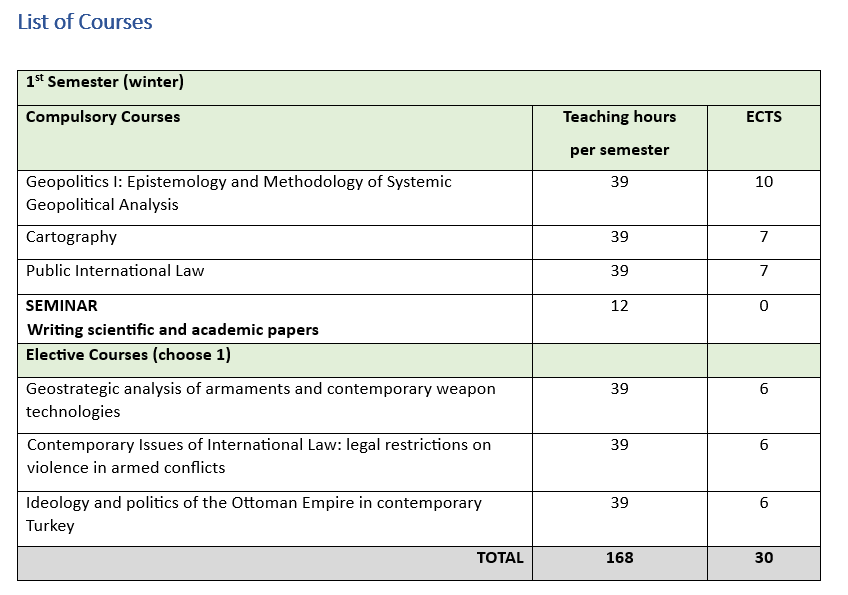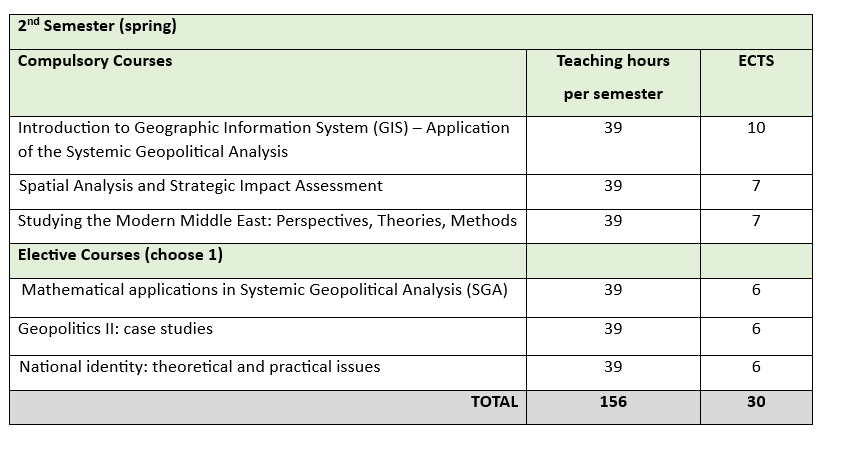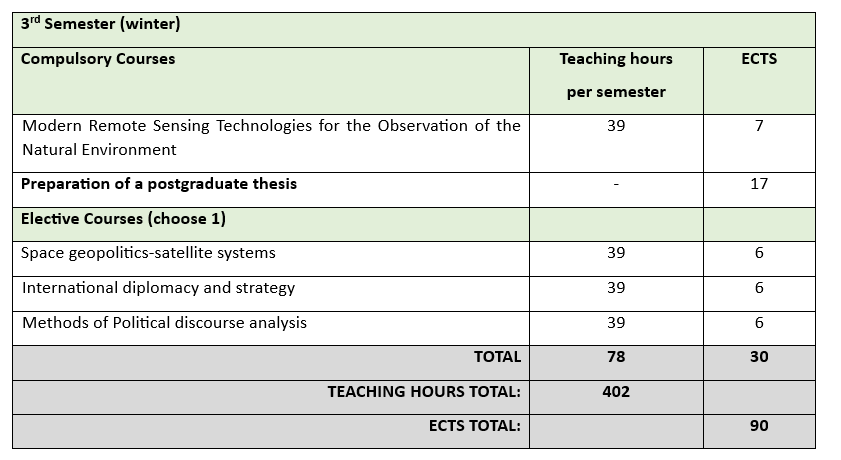The MSc in “Theoretical and Applied Geopolitical Analysis in International Relations and Strategy” is an 18 months taught postgraduate program, run by the Department of Turkish Studies and Modern Asian Studies, School of Economics and Political Science, National and Kapodistrian University of Athens, in collaboration with the School of Rural, Surveying and Geoinformatics Engineering of the National Technical University of Athens.
Highlights: The course provides detailed study of international security topics ranging from; particular geographical regions to vital contemporary issues such as asymmetric threads, power relations & conflicts. It offers a unique and current insight at the key geopolitical issues impacting and shaping developments and shifts of power worldwide. It prepares students for a wide range of professional careers including government, NGOs, IOs and regional organizations, such as the EU. Furthermore, it seeks to train researchers, diplomats, members of the armed forces, security officers and SME executives, to soberly analyze and evaluate international developments, further targeting the rational solution of the resulting international and/or regional crisis, based on the use of systemic geopolitical analysis. The program will enable students to understand better considerations of international security, peace and stability and also, to acquire the ability to analyze the risks and opportunities with regard to: energy reserves, conflicts, geostrategic competition and global power shift.
Teaching format: Modules are taught through a mixture of lectures and seminars. Assessment methods might vary and include a combination of exams and assignments. Every MSc student is assigned two dissertation supervisors who will advise him on the choice of subject as well as provide guidance throughout the research process. Students are able to suggest the supervisors (depending on the title and the scientific requirements of the MSc dissertation).
Modules: The modules in this program have varying methods of delivery and assessment. More details regarding each module, including weekly contact hours, teaching methods and assessment, are in the latest module catalogue. The faculty of the program is comprised of scholars and practitioners with international experience. Each course has its own unique design, led by a professor responsible for teaching core lectures.
Studies & ECTS
Program begins in the winter semester of each academic year. Each semester of study (winter-spring) is structured into thirteen (13) weeks of teaching and two (2) weeks of exams.
A total of ninety (90) credit points (ECTS) are required to obtain a diploma.
Specifically, each semester corresponds to a total of thirty (30) ECTS, with the postgraduate thesis corresponding to seventeen (17) ECTS out of the 30 credit units of the third semester. All courses are taught weekly and, where appropriate, include theoretical courses, exercises and seminars.
The language of instruction is Greek, while the writing of the postgraduate thesis can be done in Greek or English, following a relevant decision by the Study Program Committee.
During their studies, postgraduate students are required to attend and successfully pass all postgraduate courses, write papers, participate in scientific conferences and seminars, and prepare a postgraduate thesis.
The thesis is prepared after the completion of two semesters of studies and is credited with seventeen (17) ECTS.
The organization of the educational process is implemented through conventional face-to-face classroom teaching.



